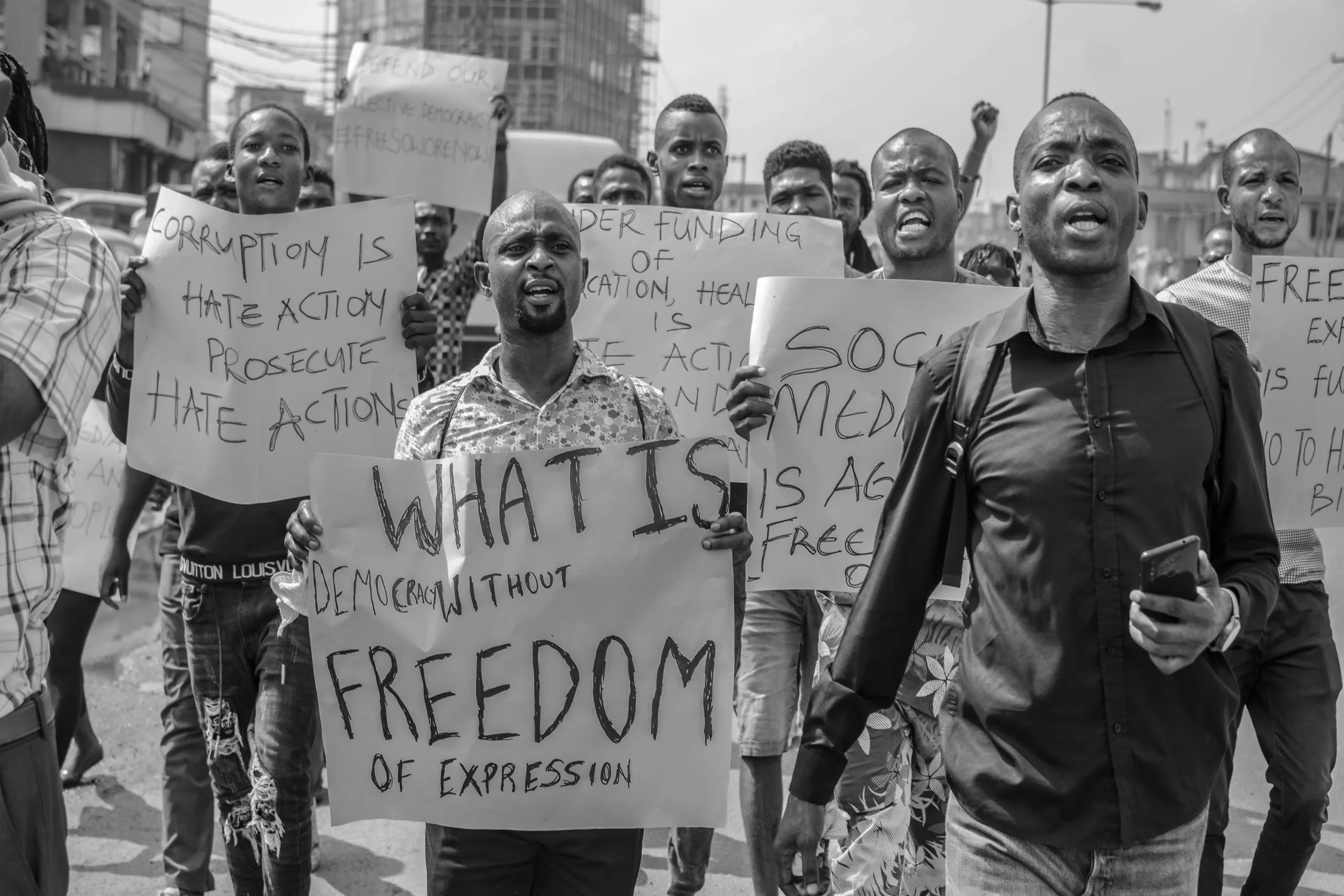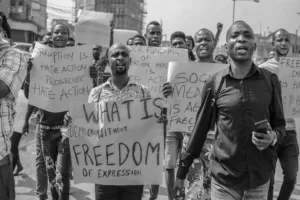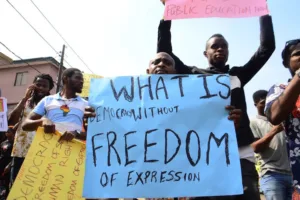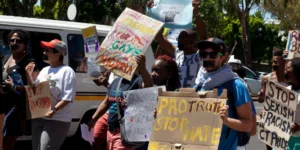
Freedom of expression in Nigeria

In any democratic society, including Nigeria, the right to freedom of expression is a fundamental one. Not only is this right spelled out in the constitution of Nigeria, but it is also a fundamental human right.
However, despite this recognition, Nigeria’s freedom of speech remains restricted. This essay aims to examine some of the most prominent manifestations of these limitations. There are numerous ways in which these limitations manifest themselves.
Freedom of expression as in the Nigerian 1999 Constitution, chapter 4 section 39 states that “Every person is entitled to the freedom of expression, freedom to hold opinions, to receive and give out information without interference.”
This means that every citizen of Nigeria has the right to the freedom to express views and opinions, without interference or obstruction from government authorities or other individuals, regardless of tribe, state of origin, sex, age, etc.
The government has and owes a duty to the citizens of Nigeria to protect those rights and freedoms.

No right or freedom is absolute, and as such, restrictions or limitations exist. Therefore, freedom of expression is not considered an absolute right and there are limitations to such rights, such as hate speech, slander, libel, pornography, confidential information, etc.
Other information may be considered offensive to society, depending on the intention, extent, and if able to be avoided.
In Nigeria, censorship of the media is the first barrier to freedom of expression. Since Nigeria has had a free press, media censorship has been a frequent practice. The Nigerian government has justified censorship over the years with a variety of justifications, including the necessity to preserve public order or safeguard national security.
For instance, the Nigerian government has a history of exerting pressure on media organizations to limit their coverage of sensitive subjects like the Boko Haram conflict or alleged government corruption. Such suppression threatens press freedom by making it more difficult for the media to cover significant stories.
Second, hate speech in Nigeria is a serious restriction on freedom of expression. Any speech that disparages an individual or a group on the grounds of their race, religion, nationality, gender, or sexual orientation is considered hate speech.
Hate speech has a history of stirring up violence, tribalism, and religious extremism in Nigeria. The government has taken action to combat hate speech, but detractors claim that some of these actions may amount to censorship.
The 2019 Hate Speech Bill, for instance, which is now being discussed in the Nigerian Parliament, calls for severe penalties, such as the death penalty, for hate speech offenses. Human rights advocates and civil society organizations have criticized this law.

Thirdly, the Cybercrime Prevention Act of 2015 places restrictions on freedom of expression. A law called the Cybercrime Prevention Act aims to control internet behavior in Nigeria. Although the law intends to combat cybercrime, it also includes restrictions on free speech.
The sending of messages that are “false, deceptive, obscene or immoral,” for instance, is illegal under Section 24. This clause has drawn criticism for being overly ambiguous, and the government has employed it to stifle dissenting opinions on online social media sites.
Fourth, the Nigerian government’s employment of security forces to suppress lawful demonstrations is another restriction on the right to free speech. Force has frequently been used by Nigerian security forces to scatter nonviolent demonstrators.
The Nigerian government has cracked down on nonviolent protesters numerous times, frequently citing the need to preserve law and order. But, since peaceful protests are an acceptable form of expression, these activities clearly violate the right to free speech.
The use of fake news laws and regulations by the Nigerian government to restrict freedom of expression is a serious problem. The Nigerian government has recently passed a number of laws and rules to combat fake news. Although this is a noble objective, these rules and legislation frequently restrict free speech.
For instance, the Nigerian Broadcasting Corporation has established a policy that mandates that all news information be checked by media outlets before being published. Although this may sound sensible, it can be used to restrict free speech since media organizations would be hesitant to publish news that is critical of the government out of concern that they will face consequences for spreading false information.

In conclusion, both the Nigerian Constitution and international human rights laws recognize the freedom of expression as a fundamental right. However, in practice, censorship, laws against hate speech, cybercrime, the use of security agencies to disperse peaceful protests, and fake news laws and regulations frequently restrict this right.
To ensure that Nigerians can freely express themselves without fear of retribution or persecution, it is essential to address these limitations. It is necessary for the government of Nigeria to take measures to safeguard free speech and foster a climate of critical dialogue.







